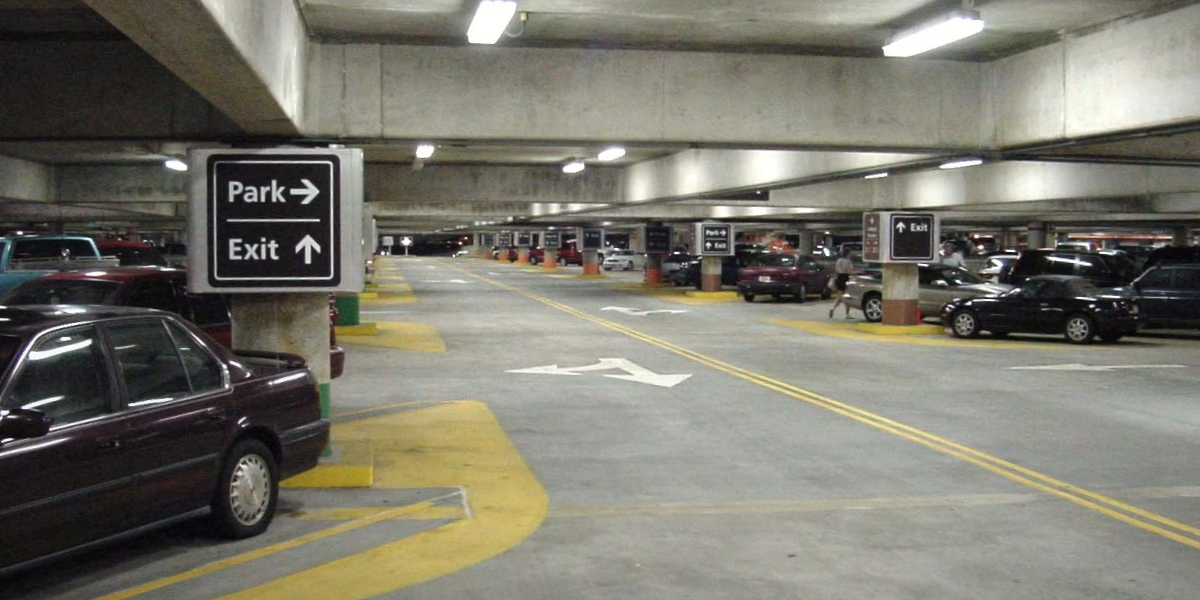Parking garages take a beating every day. Between constant vehicle traffic, oil drips, weather changes, and heavy loads, the concrete flooring is under nonstop stress. It’s no surprise that cracks in garage floor surfaces are common, but that doesn’t mean they should be ignored.
At first, a crack might seem harmless. A small line in the concrete doesn’t always raise alarms. But over time, even small cracks can grow wider, deeper, and more dangerous. For commercial property owners and facility managers, these cracks can turn into real safety hazards (and expensive liabilities).
Why Do Cracks Happen in Parking Garage Floors?
Commercial garages deal with much more strain than residential ones. Every day, they support thousands of pounds of weight, including delivery trucks, SUVs, and employee vehicles. That weight adds up fast. Combine that with temperature swings, moisture intrusion, and soil movement underneath the structure, and cracks can form sooner than you think.
Here are a few common causes:
- Heavy traffic patterns that wear down certain sections faster
- Water pooling from poor drainage or broken seals
- Soil settling or shifting under the slab foundations, creating voids
Poor installation or a lack of proper reinforcement during construction also makes cracking more likely. If the slab doesn’t have the right thickness, joint spacing, or subgrade prep, cracks can appear earlier than expected.
Not All Cracks Are the Same!
Some cracks are surface-level and mostly cosmetic. Others go deeper and signal foundation or structural problems.
- Hairline cracks are thin and don’t show movement. They may not be urgent but should be monitored.
- Wide cracks that are growing or show edges at different heights can be more serious.
- Patterned or network cracks may show that the surface is shrinking unevenly.
- Vertical displacement (where one side of the crack is higher than the other) is a big red flag for safety and stability.
- Cracks near support columns or load-bearing areas can signal structural stress and should be checked immediately.
When you start to see cracks spreading, deepening, or appearing in new areas, that usually points to a larger problem under the surface.

How Cracks in Garage Floors Create Safety Risks
Cracked concrete is more than a cosmetic issue. It can create real hazards in commercial settings:
- Trip hazards for pedestrians and employees
- Vehicle damage, including tire wear and alignment issues
- Water infiltration, which speeds up erosion and freeze-thaw damage
- Compromised structure, especially when cracks expose rebar or allow chemicals to break down the concrete
If a customer or employee trips in your garage due to an uneven slab, that’s a potential liability claim. And once water starts working its way into cracks, it’s only a matter of time before bigger sections start to settle or crumble.
How to Know When It’s Time to Act
Not every crack needs immediate repair. But some signs should prompt you to get an expert involved:
- Cracks that are growing or multiplying
- Cracks paired with uneven surfaces or sinking areas
- Water pooling in the same places after every rain
- Exposed rebar or rust stains around cracks
- Difficulty closing gates or barriers due to slab movement
If you notice any of these issues, don’t wait. Early parking lot repairs are faster, easier, and less expensive than waiting until a full section of the garage has failed.
How Leveled Concrete Repairs Parking Garage Cracks
At Leveled Concrete, we specialize in concrete lifting, leveling, and stabilizing commercial concrete surfaces. Our team starts with a detailed inspection to figure out the real cause of the damage.
If the cracks are due to soil settlement, we use polyurethane foam injection to fill the voids and lift the slab back into place. This material is lightweight, strong, and cures in minutes. It also resists moisture and adds long-term support to the structure.
We can also seal the cracks to block water intrusion and reinforce the slab. The process is fast, low-mess, and causes minimal disruption to your parking operations. Most repairs can be done in a day without shutting down the whole garage.
Don’t Wait!
Cracks in garage floor surfaces are common in commercial garages, but they’re not always harmless. Left alone, they can lead to bigger problems (both in cost and safety).
If you manage a commercial property in the Greater Houston area, schedule a free consultation with Leveled Concrete. We’ll assess the cracks, explain what’s going on, and help you decide the best commercial foundation repair approach.
We’re here to help you protect your property, your people, and your peace of mind.
Call us today or schedule online to get started.

